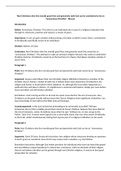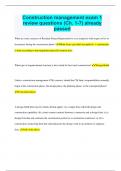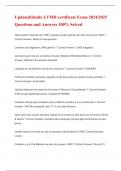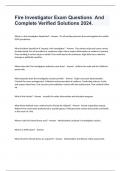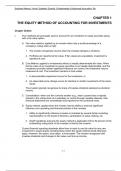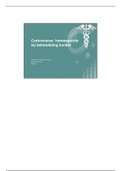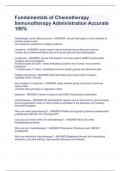“anonymous Christian”. Discuss.
Introduction
Define: Anonymous Christian- This refers to any individual who is part of a religious institution that
through its structures, practices and values is a means of grace.
Importance: If one can gain salvation without being a Christian or belief in Jesus Christ, commitment
to Christianity specifically seems to be redundant.
Scholars: Rahner, D’Costa
Conclusion: Non-Christians who live morally good lives and genuinely seek God cannot be an
“anonymous Christian”. The attempt to make an exclusive religion inclusive only works to undermine
Christian doctrine. Christianity cannot be at the forefront of a theory that allows salvation outside of
Jesus Christ.
Paragraph 1
Point: Non-Christians who live morally good lives and genuinely seek God cannot be an “anonymous
Christian”.
Argument: Anyone who follows their non-Christian religion faithfully is therefore a member of the
invisible church. Rahner’s model of lawful (as it follows divine law) anonymous Christianity is the
religion and history in Israel before Christ (Judaism). So, although the incarnation happened at a
particular time and place in history, it’s significance is universal and timeless. Simply put, Jews before
Jesus (and after) can still achieve salvation.
Karl Rahner- God is loving and fair so all must be saved. Jesus died for the sins of everyone. Non-
Christians can be good morally without Jesus/the Church. Religions share significant similarities. Can
have knowledge of God without the Bible (natural theology).
Counterargument: Is this just exclusivism pretending to be universally accessible? Perhaps
inclusivism tries to find a middle ground that cannot be found. If Rahner believes that Jesus died for
the sins of everyone, surely, he believes Jesus when he says “without me, no one can go to the
Father” John 14:6. It seems more logical to be a universalist alone, than one who asserts Christianity
as the truth, whilst simultaneously stating that anyone part of a religious institution can be saved.
Paragraph 2
Point: Non-Christians who live morally good lives and genuinely seek God can be an “anonymous
Christian”.
Argument: Gavin D’Costa: Structural Inclusivism: Any religion whose structures develop an openness
to God’s grace as revealed in Jesus Christ may receive God’s salvation, e.g. Karl Rahner.
Restrictive Inclusivism: Although God makes provision for individuals who have not heard the gospel
but nevertheless respond positively to natural law, conscience, and true elements of their religion,
they do not believe salvation can be gained through non-Christian religions. It may be at best good
preparation for salvation.
, This theory allows those who haven’t been exposed to Christianity to gain salvation. This would solve
the problem of whether people born before Jesus can gain salvation. Arguably, this more inclusive
attitude is more appealing to the 21st Century.
Paragraph 3
Point: Non-Christians who live morally good lives and genuinely seek God cannot be an “anonymous
Christian”.
Argument: Traditionally many Catholics held that there was no salvation outside the visible Church
(extra ecclesium nulla salus). Rahner rejects this idea - or at least rejects the idea that this applies
only to the visible Church. He expands the definition of 'Church' to include all those people who
might be members of the invisible Church. Those who through votum ecclesiae might be part of the
ecclesium ab Abel.
Rahner uses the idea of votum ecclesiae which is a term he takes from Aquinas. This means that
wanting (even implicitly wanting) to be part of the Church is enough to receive God's grace.
Counterargument: The notion of votum ecclesia is misused. It applies to those who consciously want
to be a part of Christianity. Therefore, it does not make sense to implicitly wish to become a member
of something.
Also, it might be more accurate to say the Christians are anonymous Buddhists or Jews, for example
how do we know it is Christianity that is the truth. If Christianity is the truth, then the issue of picking
and choosing different Christian doctrine to note as valid becomes a problem again.

